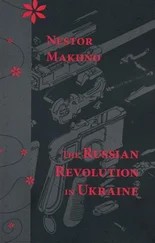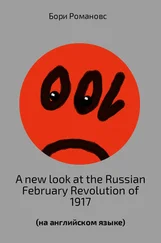Richard Pipes - The Russian Revolution
Здесь есть возможность читать онлайн «Richard Pipes - The Russian Revolution» весь текст электронной книги совершенно бесплатно (целиком полную версию без сокращений). В некоторых случаях можно слушать аудио, скачать через торрент в формате fb2 и присутствует краткое содержание. Жанр: Старинная литература, на английском языке. Описание произведения, (предисловие) а так же отзывы посетителей доступны на портале библиотеки ЛибКат.
- Название:The Russian Revolution
- Автор:
- Жанр:
- Год:неизвестен
- ISBN:нет данных
- Рейтинг книги:3 / 5. Голосов: 1
-
Избранное:Добавить в избранное
- Отзывы:
-
Ваша оценка:
- 60
- 1
- 2
- 3
- 4
- 5
The Russian Revolution: краткое содержание, описание и аннотация
Предлагаем к чтению аннотацию, описание, краткое содержание или предисловие (зависит от того, что написал сам автор книги «The Russian Revolution»). Если вы не нашли необходимую информацию о книге — напишите в комментариях, мы постараемся отыскать её.
The Russian Revolution — читать онлайн бесплатно полную книгу (весь текст) целиком
Ниже представлен текст книги, разбитый по страницам. Система сохранения места последней прочитанной страницы, позволяет с удобством читать онлайн бесплатно книгу «The Russian Revolution», без необходимости каждый раз заново искать на чём Вы остановились. Поставьте закладку, и сможете в любой момент перейти на страницу, на которой закончили чтение.
Интервал:
Закладка:
Mirskii was not overjoyed by Nicholas’s offer. Considerations of personal safety played a part in his hesitation: on his retirement half a year later, he would toast his good fortune in having survived so dangerous an assignment. 27But he also did not think that someone holding his views could work with the Court. To prevent misunderstandings, he laid out before Nicholas his political credo:
You know little of me and perhaps think that I share the opinions of the two preceding ministers. But, on the contrary, I hold directly opposite views. After all, in spite of my friendship with Sipiagin, I had to quit as Deputy Minister because I disagreed with his politics. The situation has become so acute that one can consider the government to be at odds with Russia. It is imperative to make peace, or else Russia will soon be divided into those who carry out surveillance and those who are under surveillance, and then what?
28
He advised Nicholas that it was necessary to introduce religious tolerance, to broaden the competence of self-government (he referred to himself as a “ zemstvo man”), to confine the concept of political crime to acts of terror and incitement to terror, to improve the treatment of the minorities, to ease censorship, and to invite zemstvo representatives for consultations. Nicholas, whose upbringing precluded open disagreement, seemed to approve of everything Mirskii told him. 29
Mirskii’s appointment to the most important administrative post in Russia was very favorably received. As an experienced official with a broad base of popular support, he seemed the ideal man to resolve the political crisis. His main shortcomings were softness of character and lack of decisiveness which caused him to send signals that encouraged the opposition in the belief the government was prepared to make greater concessions than was the case.
Mirskii immediately went to work to win public support. He abolished corporal punishment, relaxed censorship, and restored to their posts a number of prominent zemtsy whom Plehve had exiled. He further expressed the intention of lifting the disabilities of the Old Believers and easing the lot of the Jews. He made a strong impression with an address to the officials of the Ministry of the Interior, published in the press, in which he said that experience had taught him that government had to have a “genuinely well-meaning and genuinely trustful attitude toward civic and estate institutions and the population at large.” 30
A new era seemed to be dawning. The zemtsy read in Mirskii’s remarks an invitation to hold a national congress. They had held one such gathering in 1902, but surreptitiously because it was illegal. The idea of a public zemstvo congress emerged in late August 1904, immediately after Mirskii’s appointment, and quickly gained the endorsement of both the liberal (constitutionalist) and conservative (Slavophile) wings of the movement. Initially, the planners intended to confine the agenda to zemstvo affairs. But having learned of Mirskii’s remarks, they concluded that the government would welcome their views on national issues and expanded the agenda accordingly. The zemtsy felt it was essential to institutionalize the latest changes in government policy: Mirskii, after all, could prove merely a tool of the “dark forces”—the Court camarilla, above all—to be discarded as soon as he had served his purpose by pacifying the country. In the words of Dmitrii Shipov, the most prominent among the conservative zemtsy , many of his associates felt
that so far, trust in society had been expressed only by the individual placed at the head of the Ministry of the Interior … it was necessary for that one official’s sense of trust to be assimilated by the entire government and clothed in legal form, protected by safeguards, which would preclude shifts in the government’s attitude to society being dependent on such happenstance as the change of personnel at the head of government offices. It was further said that it had become an urgent need to make proper arrangements for legislative activity and to grant a national representative body participation in it.
31
These sentiments spelled constitution and a legislative parliament. Some conservative zemtsy thought this went too far, but persuaded that the government wanted to hear the whole range of opinions, they agreed to place constitutional proposals on the agenda of the forthcoming congress, scheduled for early November.
When he first learned that the zemtsy planned a national congress Mirskii not only approved but asked and received the Tsar’s blessing for it. In so doing he was under the misapprehension that the gathering would confine itself, as, indeed, had originally been planned, to zemstvo matters; in this belief, he inadvertently misled the Tsar. When he learned of the revised agenda, he requested Shipov to have the congress postponed for several months. Shipov thought this impossible to arrange, whereupon the minister requested that it move to Moscow. This, too, was rejected, so Mirskii agreed to have the congress proceed as planned but in the guise of a “private consultation” ( chastnoe soveshchanie ). His approval conveyed the misleading impression that the government was prepared to contemplate a constitutional and parliamentary regime.
Expecting the Zemstvo Congress to come up with a constitutional project, Mirskii asked Sergei Kryzhanovskii, an official in his ministry, to draft a counterproposal. His intention was to formulate a program that would include the maximum of oppositional demands conceivably acceptable to the Tsar. 32
In this atmosphere of great expectations, the oppositional groups felt the time had come to combine forces. On September 17, representatives of the constitutionalist Union of Liberation met secretly in Paris with Socialists-Revolutionaries as well as Polish and Finnish nationalists, to forge a united front against the autocracy.*
The Paris Conference was a prelude to the great Zemstvo Congress held in St. Petersburg on November 6–9, 1904, an event that in terms of historical importance may be compared with the French Estates-General of 1789. The analogy was not lost on some contemporaries. 33
The congress met in private residences, one of them the apartment of Vladimir Nabokov (the father of the future novelist) on Bolshaia Morskaia, within sight of the Winter Palace. 34On arrival in the capital, the delegates were directed to their destination by the police.
A number of resolutions were put up for a vote, of which the most important as well as the most controversial called for an elected legislature with a voice in the shaping of the budget and control over the bureaucracy. The conservatives objected to this motion on the grounds that political democracy was alien to Russia’s historic traditions: they wanted a strictly consultative body modeled on the Muscovite Land Assemblies that would convey to the throne the wishes of its subjects but not interfere with legislation. They suffered defeat: the resolution in favor of a legislative parliament carried by a vote of 60–38. There was near-unanimity, however, that the new body should have a voice in the preparation of the state budget and oversee the bureaucracy. 35It was the first time in the history of modern Russia that a legally assembled body—even if assembled under the guise of a “private consultation”—passed resolutions calling for a constitution and a parliament—even if the resolutions did not use these taboo words.
In the weeks that followed, the platform adopted by the Zemstvo Congress provided the text for the many public and private bodies that met to take a stand on national questions, among them the Municipal Council of Moscow, various business associations, and the students of nearly all the institutions of higher learning. 36To spread the message as widely as possible, the Union of Liberation organized a campaign of nationwide banquets—modeled on 1848 France—at which the guests toasted freedom and the constitution. 37The first took place in St. Petersburg on November 20, the fortieth anniversary of the judiciary reform; 676 writers and representatives of the intelligentsia affixed their signatures to a petition calling for a democratic constitution and a Constituent Assembly. Similar banquets were held in other cities during November and December 1904. The socialist intelligentsia, which at first had poured scorn on these “bourgeois” affairs, eventually joined in and radicalized the resolutions. Of the forty-seven banquets on which there exists information, thirty-six are known to have followed the Zemstvo Congress, while eleven went further and demanded a Constituent Assembly. 38The provincial authorities, confused by conflicting signals from the capital, did not interfere, even though Mirskii instructed them in secret circulars to prevent the banquets from taking place and to disperse them if they defied government prohibitions. 39
Читать дальшеИнтервал:
Закладка:
Похожие книги на «The Russian Revolution»
Представляем Вашему вниманию похожие книги на «The Russian Revolution» списком для выбора. Мы отобрали схожую по названию и смыслу литературу в надежде предоставить читателям больше вариантов отыскать новые, интересные, ещё непрочитанные произведения.
Обсуждение, отзывы о книге «The Russian Revolution» и просто собственные мнения читателей. Оставьте ваши комментарии, напишите, что Вы думаете о произведении, его смысле или главных героях. Укажите что конкретно понравилось, а что нет, и почему Вы так считаете.












